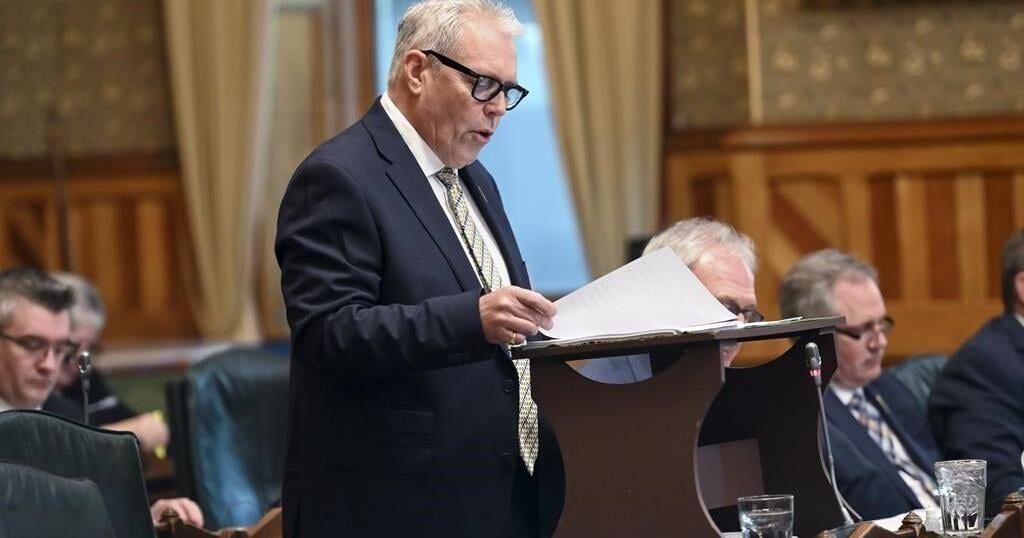Tom Noctor
Economy
Technology will help in the shortage economy – GCR

You can’t always get what you want, and sometimes you can’t even get what you need.
That has become the soundtrack of supply chains around the world and it’s set to continue for a while yet – creating a ‘shortage economy’.
With the global economy now structured by shortages, if construction firms want to survive they must manage the risk and instability of supply chains to avoid derailing their projects and their business. They also need to find a way to keep costs down across the rest of their operations to stop increased prices pushing them into the red.
It’s no mean feat, but construction has the capacity to evolve and adapt to this challenge. The need for smarter construction, through digital tools, was always there but it has now become essential to surviving and thriving in the shortage economy.
Managing supply chain risk
In the shortage economy, one big issue for construction firms is the fluctuation in delivery dates and the supply chain’s lack of predictability. Sudden shortages and last minute changes threaten to throw a project off course, causing costs to spiral. It’s therefore essential to create and maintain communication across a project’s supply chain to encourage visibility on delivery dates and instant notification of any changes. If project managers have real-time access to information, they can build an accurate project schedule, manage client expectations and adjust work if a supply problem delay arises. With so many moving parts, this can be achieved with a construction management platform that connects every member of a supply chain, making it easier to inform others of unexpected delays or shortage issues.
For building services specialists like HBS Group Southern, such technology has promoted information sharing across the supply chain, particularly for the high-volume house building clients HBS works with. Thanks to all data being live and accessible anytime and anywhere, HBS spends less time chasing the statuses of projects and more time focusing on the job at hand.
Countering shortages and controlling their impact
Efficiency is crucial in the context of the shortage economy. With price hikes and longer lead times increasing expenses and reducing profits, construction firms need to find a way to recoup costs elsewhere. They can do this by working as productively and efficiently as possible, so they aren’t wasting money and resources through sluggish or outdated processes.
Again, tech can help here. Digital collaboration tools allow teams to work more quickly and make administration tasks easier with ready made templates, fast-tracked invoicing processes and features to monitor tender progress and success. Not only do these tools help teams work more efficiently in the moment, they generate data that enable managers to identify any bottlenecks or problem areas that are affecting the business.
The shortage economy may have limited materials and labour but it doesn’t affect our ability to rethink and innovate. Embracing the right tools and updating processes allows firms to adapt to new economic conditions and manage the higher risks and costs created by the supply chain crisis. By increasing efficiency on a micro level, through smarter working, construction can help mitigate the inefficiency we’re experiencing at macro level.
Tom Noctor is Team Lead, Strategic Product Consultants at Procore
Continue Reading
Economy
Federal money and sales taxes help pump up New Brunswick budget surplus

FREDERICTON – New Brunswick‘s finance minister says the province recorded a surplus of $500.8 million for the fiscal year that ended in March.
Ernie Steeves says the amount — more than 10 times higher than the province’s original $40.3-million budget projection for the 2023-24 fiscal year — was largely the result of a strong economy and population growth.
The report of a big surplus comes as the province prepares for an election campaign, which will officially start on Thursday and end with a vote on Oct. 21.
Steeves says growth of the surplus was fed by revenue from the Harmonized Sales Tax and federal money, especially for health-care funding.
Progressive Conservative Premier Blaine Higgs has promised to reduce the HST by two percentage points to 13 per cent if the party is elected to govern next month.
Meanwhile, the province’s net debt, according to the audited consolidated financial statements, has dropped from $12.3 billion in 2022-23 to $11.8 billion in the most recent fiscal year.
Liberal critic René Legacy says having a stronger balance sheet does not eliminate issues in health care, housing and education.
This report by The Canadian Press was first published Sept. 16, 2024.
The Canadian Press. All rights reserved.
Economy
Liberals announce expansion to mortgage eligibility, draft rights for renters, buyers

OTTAWA – Finance Minister Chrystia Freeland says the government is making some changes to mortgage rules to help more Canadians to purchase their first home.
She says the changes will come into force in December and better reflect the housing market.
The price cap for insured mortgages will be boosted for the first time since 2012, moving to $1.5 million from $1 million, to allow more people to qualify for a mortgage with less than a 20 per cent down payment.
The government will also expand its 30-year mortgage amortization to include first-time homebuyers buying any type of home, as well as anybody buying a newly built home.
On Aug. 1 eligibility for the 30-year amortization was changed to include first-time buyers purchasing a newly-built home.
Justice Minister Arif Virani is also releasing drafts for a bill of rights for renters as well as one for homebuyers, both of which the government promised five months ago.
Virani says the government intends to work with provinces to prevent practices like renovictions, where landowners evict tenants and make minimal renovations and then seek higher rents.
The government touts today’s announced measures as the “boldest mortgage reforms in decades,” and it comes after a year of criticism over high housing costs.
The Liberals have been slumping in the polls for months, including among younger adults who say not being able to afford a house is one of their key concerns.
This report by The Canadian Press was first published Sept. 16, 2024.
The Canadian Press. All rights reserved.
Economy
Statistics Canada says manufacturing sales up 1.4% in July at $71B

OTTAWA – Statistics Canada says manufacturing sales rose 1.4 per cent to $71 billion in July, helped by higher sales in the petroleum and coal and chemical product subsectors.
The increase followed a 1.7 per cent decrease in June.
The agency says sales in the petroleum and coal product subsector gained 6.7 per cent to total $8.6 billion in July as most refineries sold more, helped by higher prices and demand.
Chemical product sales rose 5.3 per cent to $5.6 billion in July, boosted by increased sales of pharmaceutical and medicine products.
Sales of wood products fell 4.8 per cent for the month to $2.9 billion, the lowest level since May 2023.
In constant dollar terms, overall manufacturing sales rose 0.9 per cent in July.
This report by The Canadian Press was first published Sept. 16, 2024.
The Canadian Press. All rights reserved.
-

 News10 hours ago
News10 hours agoWorld Junior Girls Golf Championship coming to Toronto-area golf course
-

 Economy23 hours ago
Economy23 hours agoLiberals announce expansion to mortgage eligibility, draft rights for renters, buyers
-

 Sports22 hours ago
Sports22 hours agoPenguins re-sign Crosby to two-year extension that runs through 2026-27 season
-

 Business11 hours ago
Business11 hours agoPolitics likely pushed Air Canada toward deal with ‘unheard of’ gains for pilots
-

 Sports22 hours ago
Sports22 hours agoFernandez and Dabrowski headline Canadian lineup for Billie Jean King Cup Finals
-

 News11 hours ago
News11 hours agoDonald Trump doesn’t share details about his family’s cryptocurrency venture during X launch event
-

 News20 hours ago
News20 hours agoFormer military leader Haydn Edmundson found not guilty of sexual assault
-

 News10 hours ago
News10 hours agoBlinken is heading back to the Middle East, this time without fanfare or a visit to Israel





















